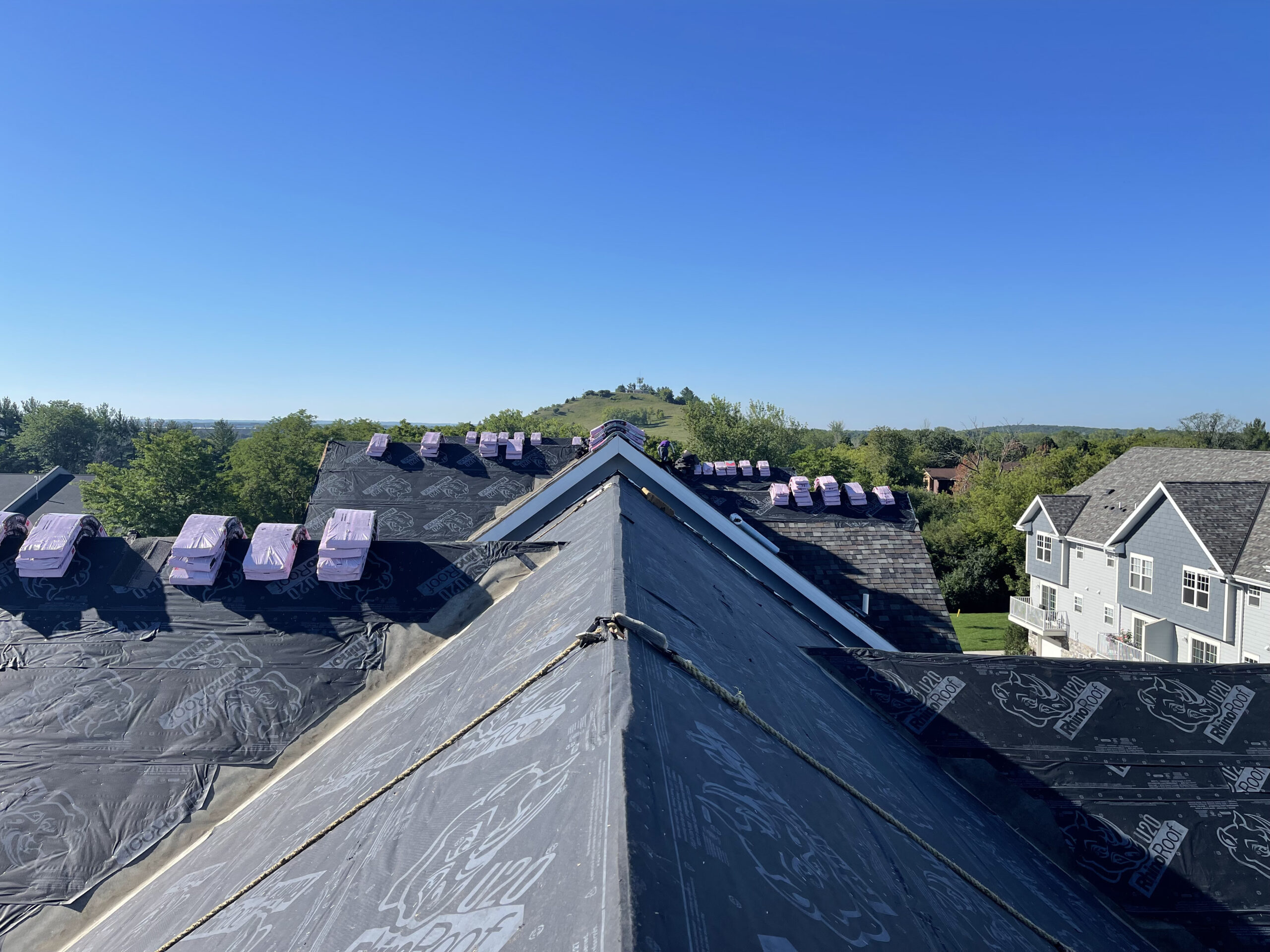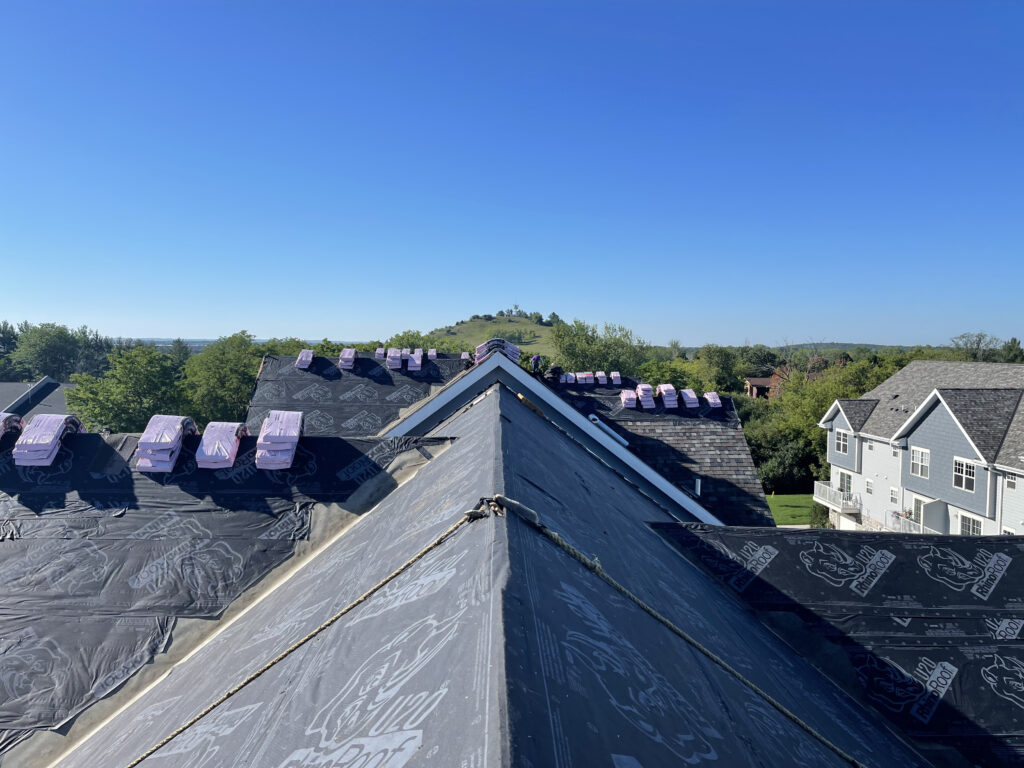
If you're a homeowner in Milwaukee and you're considering replacing your roof, you may be wondering whether you need a permit for the project. Providing a simple yes or no response is not feasible since several factors need to be taken into account, making the answer more complex and requiring careful consideration. In this blog post, we will delve into the topic of roof permits in Milwaukee, providing you with the information you need to navigate the permit requirements in your area.

Understanding the Significance of Historical Homes and Neighborhoods:
Historic residences and neighborhoods play a crucial role in preserving our heritage, displaying distinct architectural styles, exceptional craftsmanship, and cultural significance. By safeguarding these properties, we enhance the overall allure and appeal of Milwaukee, drawing in both residents and tourists. Nevertheless, it is imperative to adhere to specific permit regulations to guarantee the appropriate restoration and upkeep of these historic homes.
Permits play a pivotal role in upholding the authenticity and character of historical residences and neighborhoods. They serve as a vital regulatory mechanism, facilitating a harmonious balance between preservation endeavors and essential repairs, renovations, or expansions. The acquisition of permits guarantees that any proposed alterations adhere to local ordinances and guidelines established by historical preservation authorities.
Understanding Milwaukee's Permit Requirements:
In Milwaukee, historical homes and neighborhoods fall under the jurisdiction of the Historic Preservation Commission (HPC). The HPC is responsible for reviewing and approving permit applications for work performed on historical properties.
Some key points to consider regarding permit requirements include:
Benefits of Obtaining Permits:
Securing the required permits for work on historical homes and neighborhoods offers several benefits, including:
It's important to note that permit requirements can vary depending on the state and county regulations. In the case of Milwaukee, the regulations set forth by the State of Wisconsin and Milwaukee County need to be followed. These regulations are in place to ensure that construction and renovation projects, including roof replacements, meet certain standards and comply with safety codes.
To gain a better understanding of the specific code requirements, you can refer to the legislative text concerning roof permits in the State of Wisconsin. One relevant section is S.321.28, which provides detailed information about the permit requirements for roof replacements. This legislative text outlines the specific conditions under which a permit is needed and the process for obtaining one. It's essential to familiarize yourself with these regulations to ensure compliance with the law.
Understanding State Code Changes and S.321.28
State and county regulations play a crucial role in shaping various aspects of our lives, including business operations, construction standards, environmental protection, and more. Staying informed about these ever-changing state code changes is essential for individuals, businesses, and organizations to ensure compliance and avoid potential legal issues. In this blog post, we will explore the significance of understanding state code changes, with a particular focus on the impact of S.321.28.
State code changes are legislative updates that modify existing laws or introduce new regulations. These changes reflect evolving societal needs, advancements in technology, and emerging challenges faced by communities. Understanding state code changes is essential for the following reasons:
Understanding S.321.28
One particular legislative text that warrants attention is S.321.28. While the details of this code may vary depending on the specific state. Please revise the following points:
Understanding state code changes, such as S.321.28, is crucial for individuals, businesses, and organizations to navigate the complex landscape of regulations effectively. By staying informed, seeking expert guidance, and implementing compliance strategies, stakeholders can ensure adherence to the law, promote safety, protect the environment, and stay competitive within their respective industries. Remember, continuous monitoring of state code changes is essential to stay up-to-date and adapt to evolving legal requirements.
Disclaimer: This blog post delivers general information and should not be considered lawful advice. For specific legal inquiries or concerns regarding state code changes, consult a qualified attorney or legal professional in your jurisdiction.

When undertaking a roof replacement project, it's crucial to clarify with your contractor whether they will be responsible for obtaining the necessary permits or if that falls on the homeowner. While some contractors may handle the permit process as part of their services, others may require homeowners to obtain the permits themselves. Clear communication with your contractor is key to avoiding any misunderstandings and ensuring compliance with the law.
In addition to permits, it's also important to consider the qualifications and licenses of your chosen contractor. To pull a permit for a roof replacement in Milwaukee, certain licenses may be required. The State of Wisconsin requires contractors to hold a State DCQ License and DC License to perform roofing work. These licenses serve as evidence that the contractor has met specific qualifications and standards set by the state. Hiring a licensed and qualified contractor is crucial not only for permit purposes but also for the quality and safety of the roof replacement.
Staying Informed and Updated
Building codes and regulations are subject to change over time. It's essential to stay updated with any revisions or amendments that may affect your roofing project. Consulting with local building authorities or professionals in the field can help ensure you have the most current information.
Always consult with local authorities or professionals to confirm the most up-to-date information regarding permit requirements, as building codes can change over time. Taking the time to understand the regulations and fulfill the necessary requirements will help you avoid any legal complications and ensure the safety and integrity of your new roof.
Conclusion
In conclusion, whether you need a permit to replace a roof in Milwaukee depends on various factors such as the historical status of your home or neighborhood and whether you plan to replace the roof decking. Familiarizing yourself with the state and county codes, particularly S.321.28 of the State of Wisconsin, can provide you with the necessary information to understand the permit requirements.
Remember, it is essential to clarify with your contractor who will be responsible for obtaining the necessary permits. Additionally, ensure that your contractor holds the appropriate licenses required by the state to perform roofing work. By following these guidelines and adhering to the regulations, you can ensure a smooth and compliant roof replacement project in Milwaukee.
Always consult with local authorities or professionals to confirm the most up-to-date information regarding permit requirements, as building codes can change over time. Taking the time to understand the regulations and fulfill the necessary requirements will help you avoid any legal complications and ensure the safety and integrity of your new roof.